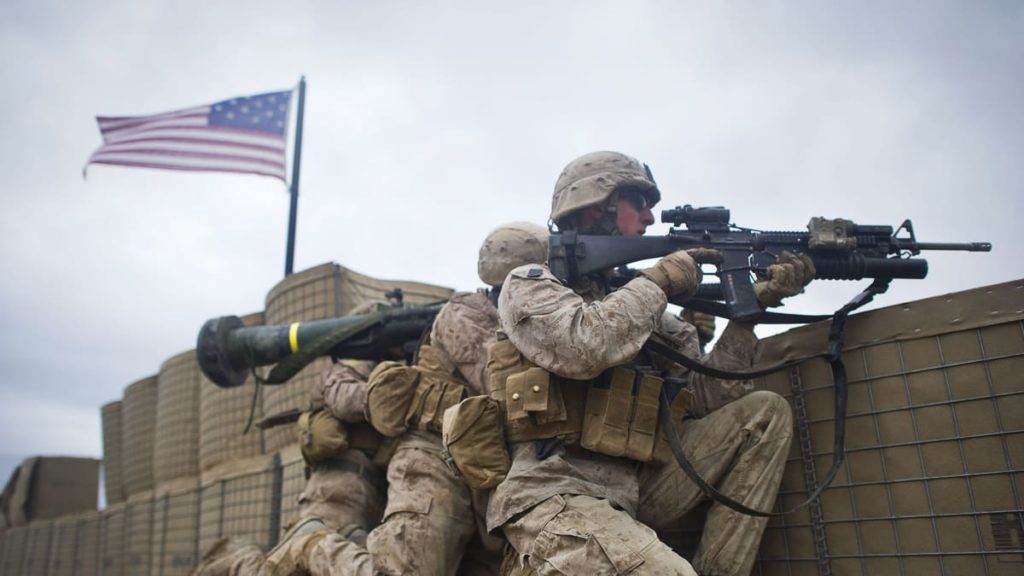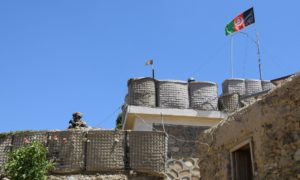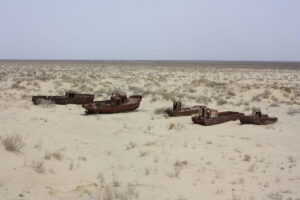Uncle Sam and His Geopolitics: Why The US Fails Miserably In Winning Lengthy Wars Fought Abroad

FILE PHOTO: Pentagon data shows that more than 775,000 US combatants have been deployed to Afghanistan at least once
The United States possesses the unparalleled ability to get embroiled in sticky geopolitical situations with predictable regularity. It’s almost as if the US finds its raison d’etre in looking for new spots on earth to send its military and try to establish its troop-heavy presence there. In the last century, it was Vietnam. In the current one, it is Afghanistan. Both wars fought under suspect circumstances, both lasting several years, with nothing to show for it, except billions of dollars spent in keeping ‘boots on the ground’ and thousands of military casualties.
So, the question needs to be asked — why does the US do it? Why does it keep getting taken out to the cleaners, geopolitically, over and over again? Are no lessons learnt? Are those thousands of casualties — both civilian and military — just a flash in the pan, meaning nothing more than the platitudes that seem to be offered at Arlington National Cemetery during carefully-choreographed ceremonies? What about the millions of dollars spent in keeping up the pretence of ‘winning’ these wars in strange lands? Who are the war-room strategists answerable to, their decisions impacting millions at home and in war-zones?

There are no easy answers to this. Some would say the US suffers from an incurable Uncle Sam Syndrome, forever trying to force-wave the Star Spangled Banner in lands distant and distraught; always on the lookout for opportunities to meddle in Third World nations and First World outposts; having taken upon itself the role of ‘liberator’ and ‘mediator’ without so much as stopping to consider if it is welcome to do so.
In Afghanistan, the US has waged one of its longest wars in its history — 18 years, and counting. What began in 2001 as a battle to dismantle al-Qaeda from Afghanistan and the Tribal Areas, turned into a non-conclusive war with no clear winners and the US emerging as the definitive Uncle Sam-like pretender to ‘victory’ and ‘closure’.
The other time the US faced a similar situation was with the Vietnam War, when it allied forces with South Vietnam and engaged in a non-decisive conflict that lasted the better part of two decades and caused 365,000 Vietnamese civilian casualties. Around 58,220 US military personnel also died in the war. As always, the cost and benefits of withdrawal far exceeded maintaining the status quo of an ongoing conflict but the US stayed put, at great cost to its military and to Vietnamese civilians.
The situation is only marginally-different in Afghanistan. In that ancient land, the US and its NATO allies are keeping up the war effort despite an unforgiving terrain and unfavourable weather, with about 2,400 American service members having perished in the war effort so far. Of these, 16 died in combat action this year itself. Some 20,000 soldiers have suffered casualties, many of them of a serious nature.
However, another set of numbers from the war reveal its behemothian nature. Pentagon data shows that in a war that has persisted for an entire generation, more than 775,000 US combatants have been deployed to Afghanistan at least once. The US Army, the Pentagon’s largest service, has deployed the most troops to Afghanistan. More than 491,500 soldiers have served there, including active-duty forces, Army reservists and National Guardsmen. The Air Force, whose presence in Afghanistan has persisted even as the overall number of troops shrank, has deployed the second most, with about 123,000 airmen involved. The Marine Corps deployed about 20,000 service members at a time during the height of the war in 2010 and 2011. Overall, more than 114,000 Marines were deployed.
All this deployment and no end in sight to the war that bleeds the US with a thousand cuts. One cannot help but wonder why is it that after 18 long years of a high-intensity conflict and with no timeline on troop pullout, US President Donald Trump felt it necessary to invite members of the Taliban to a series of talks at Camp David? And the talks would have gone ahead if Trump had his way. But Trump’s announcement, on Twitter, of the cancellation of peace talks between Afghan President Ashraf Ghani and Taliban leaders, following a car bomb attack in Kabul, came as a shock in Kabul and Washington. There was widespread disbelief that the US President would invite the Taliban over to an iconic presidential venue in the same week as the anniversary of the 9/11 attacks!
“They’re dead so far as I’m concerned,” Trump told reporters on the South Lawn of the White House. “They thought that to kill people in order to put themselves in a little better negotiating position when they did that they killed 12 people … And you can’t do that can’t do that with me. So they’re dead as far as I’m concerned. And we’ve hit the Taliban harder at the last four days than they’ve been in over 10 years.”
All this grandstanding comes at a cost, a very steep cost — of keeping troops fighting a losing war, with a recalcitrant Taliban not willing to yield any ground (literally and figuratively) and an upcoming Presidential election left to conduct peacefully and impartially. It also speaks volumes (in English but also in Pashto and Dari), about an administration and its foreign policy advisors that they were ready to sit down to talk with a rival with an unwavering stance on its ideology of regression and violence, after nearly 20 years of armed conflict. Heavily-skewed, on paper, against the militarily-inferior Taliban, the bloody battles of Afghanistan have been fought by the modern and lethal US military, and show no signs of drawing to a close.
It must be déjà vu for Henry Kissinger (now 96 years old) who served as US Secretary of State under President Richard Nixon and received the Nobel Peace Prize in 1973 for his negotiations leading to the Paris Peace Accords that ended US military action in Vietnam. Subsequently, the Communists’ victory in Vietnam and Cambodia destroyed the peace brokered in Paris, and détente with the Soviet Union never fulfilled the hopes Kissinger had aroused.
Be it Vietnam or Afghanistan, why does the US keep falling into the predictable pattern of unilateral aggression, massive military presence, mounting casualties and overall geopolitical stagnation? May be it’s time to stop meddling in the affairs of other nations; may be Uncle Sam needs to focus on America for now and leave the rest of the world to its devices; may be now is as good a time as any to halt the juggernaut of the military-industrial complex, which is largely based in America; may be its time for a new world order — not one based on conflict resolution or cozy military alliances — rooted in the doctrine of peace, stability and respect for sovereignty of all nations, big or small, friendly and inimical, allied or antagonistic.





